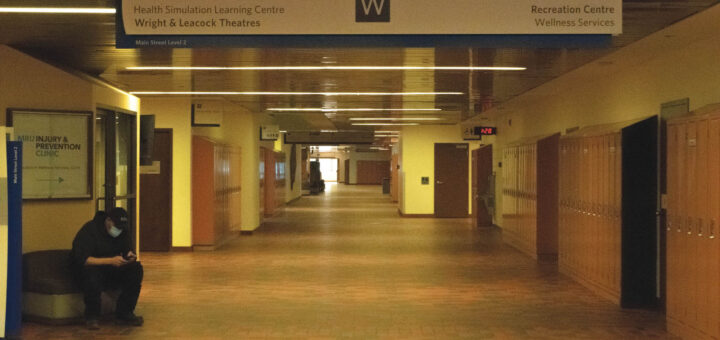MRU welcomes students back in phases

By Alex Luong, Staff Writer
Mount Royal University (MRU) is taking a three-phased approach to returning to in-person learning starting on Jan. 24. The goal is to have all courses originally scheduled for in-person instruction to be back on campus Feb. 28, the week following reading break.
Starting the week of Monday, Jan. 24, MRU will begin its first phase. The criteria for which courses will return on campus is based on a number of factors, such as if it’s required for graduation or accreditation, or classes with hands-on or experiential components. The Reflector has reached out to MRU to try to discuss the specifics of the factors but so far there hasn’t been any new information that’s not already been handed out to students. Students have been notified by their instructors if there were changes to their course delivery. If the first phase proceeds successfully, the second phase will start approximately two weeks later.
Students that have classes on campus in the upcoming weeks are reminded to wear a mask and are required to be fully vaccinated, to stay home if they are not feeling well and to get their booster shot as soon as possible.
“To progress through these phases and resume in-person instruction, we will assess the COVID-19 situation regularly, monitor risks and use data to inform our decision making,” MRU Provost Elizabeth Evans said on their update to students and staff.
MRU, along with other postsecondary institutions in Alberta, has made these decisions due to the rising Omicron variant cases which has led to more COVID-19 hospitalizations.
Some students, however, aren’t happy with MRU’s decision. An online petition has been launched to try to convince the administration to stay online. Many students have voted against the phased returns, stating that due to the class sizes and how the Omicron variant is more transmissible, students are more susceptible to contracting it. At the time of writing, there are 324 signatures on the petition. MRU has not released a statement regarding this petition yet.
However, Alberta Premier Jason Kenney said based on wastewater analysis, the province has surpassed the peak of the COVID-19 infection.
“Hospitalizations continue to rise, but we have the benefit of seeing how Omicron has played out in other jurisdictions. That is why we are taking decisive action now to help our healthcare system respond to the growing demand rising Omicron cases will bring. While some 45 per cent of non-ICU Omicron hospitalizations are incidental, the growing overall numbers will impact our hospitals, so these measures are a common-sense strategy to help our health-care system cope,” Kenney said at a press release.
Kenney also states that beds in non-ICU and ICU settings will be allocated for COVID-19 care and additional beds will be opened to add capacity. Some beds in pandemic units will be opened at the Kaye Edmonton Clinic in Edmonton and the South Health Campus in Calgary.
Alberta Health Services (AHS) is currently working with Primary Care Networks (PCN) to provide community resources for those managing their illnesses at home. AHS and PCN plan to open virtual call-lines or COVID-19 clinics in select communities that can screen, assess and appropriately direct people with mild and severe COVID-19 symptoms.
Dr. Verna Yiu, president and CEO of AHS, stated at a press release on Jan. 20 that about five per cent of AHS staff, about 5,500 people, have been sick during the pandemic. She says this is having an impact on fully staffing units and wards, citing that 18 to 20 per cent of shifts are being missed on any given day.
Team-based care models will be implemented across the province. This means rather than having individual healthcare providers caring for a smaller number of patients, a team will collectively care for a larger group of patients. A total of 610 nursing students will assist the AHS team through this wave and will receive educational credit. Yiu said their presence may allow for the more senior members of the care team to focus on other needs.
As of Jan. 22, Dr. Raj Sherman, an emergency room physician based in Edmonton, tweeted that with 1,200 COVID-19 hospital admissions, the time and quality standards of care are at risk due to shortage in staff. He encourages Albertans to do what they can to avoid the illness and to care for their vulnerable family members.
“Ask not what your province can do for you, rather what you can do for your province’s health system,” tweeted Dr. Shazma Mithani, an emergency department physician from Edmonton.
Albertans are encouraged to protect themselves and others from the virus by getting every vaccine dose they are eligible for. Appointments can be booked online with AHS or participating pharmacies or by calling 811.




